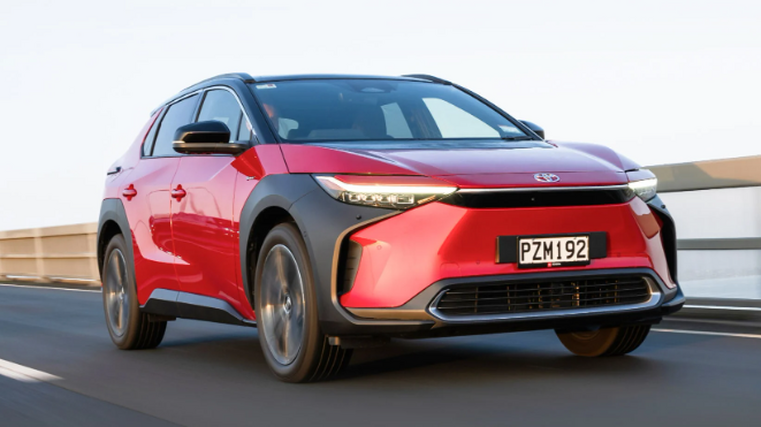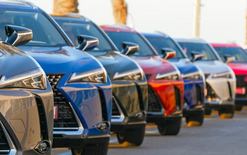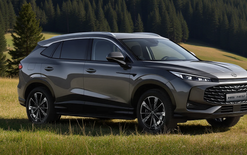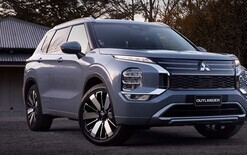War of words over EVs

The vice-president of sales at Toyota Australia has claimed battery electric vehicles (BEVs) aren’t as green as they seem and remain “impractical for the vast majority of motorists” across the Tasman.
Sean Hanley made the comments to journalists at the Japan Mobility Show where the company showed off future products, including its first electric car due to launch in Australia and New Zealand – the delayed bZ4X, pictured.
Organisations such as the Electric Vehicle Council and Tesla have hit back over the remarks, saying they have the potential to slow reductions to transport emissions and harm exports of in-demand battery minerals.
The comments come after EV sales in Australia have more than doubled and as future legislation promises to increase supply, reports The Guardian.
Hanley told journalists at the show in Tokyo that hybrid vehicles are “a better fit” for Australians and could have greater environmental benefits. He said BEVs “make sense right now in places like Norway where most energy is renewable and incomes are high, but Australia is not Europe”.
He added: “In countries like Australia, our data suggests that hybrids can have a greater impact than full electrification in getting carbon off the road.”
Hanley argued Toyota could make more hybrids with the same materials used to create one electric car, that BEVs are “powered, in many cases, by electricity generated from coal” in Australia and remain “impractical” for drivers there.
His comments have prompted rebukes from other parts of the industry. Rohan Patel, Tesla’s vice-president of public policy, issued a statement on social network X (formerly Twitter) saying Hanley is “obviously not much of an expert on the Australian electricity grid”.
He points to Australia’s growing use of renewable electricity and says thousands of drivers are using “100 per cent clean energy from the sun” to fuel their cars.
Patel says: “Aussies are too smart than to be tricked by cynical [public relations] that aims to slow the sustainable transportation transition to help sell internal combustion vehicles in the short term.”
Figures from Australia’s federal energy department show renewable sources generated 32 per cent of the lucky country’s electricity last year with most from solar followed by wind and hydro.
Behyad Jafari, the Electric Vehicle Council’s chief executive, says Hanley’s comments have the potential to undermine a lucrative local industry.
Australia produces more lithium – the main element used to make EV batteries – than any other nation in 2022, according to the US geological survey.
Jafari says: “These comments go against what’s in the best interest of Australian consumers looking to save on fuel bills and Australia’s economy by talking down the battery industry.
“This is an attempt [by Toyota] to try to defend their own failings rather than admitting, as they have at a global level, they got it wrong and have been too slow off the mark with EVs. Toyota’s market share has been dropping in Australia and EV market share has been growing.”
Figures from the Federal Chamber of Automotive Industries show Toyota remains the top-selling marque in Australia, but its lead is narrowing. The number of vehicles it has sold this year is down by more than 21,000 units from the same period in 2022, while Tesla sold almost 24,000 more cars. EVs from all brands have more than doubled in 2023. Click here for The Guardian’s full story.





